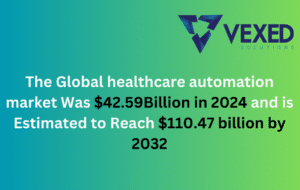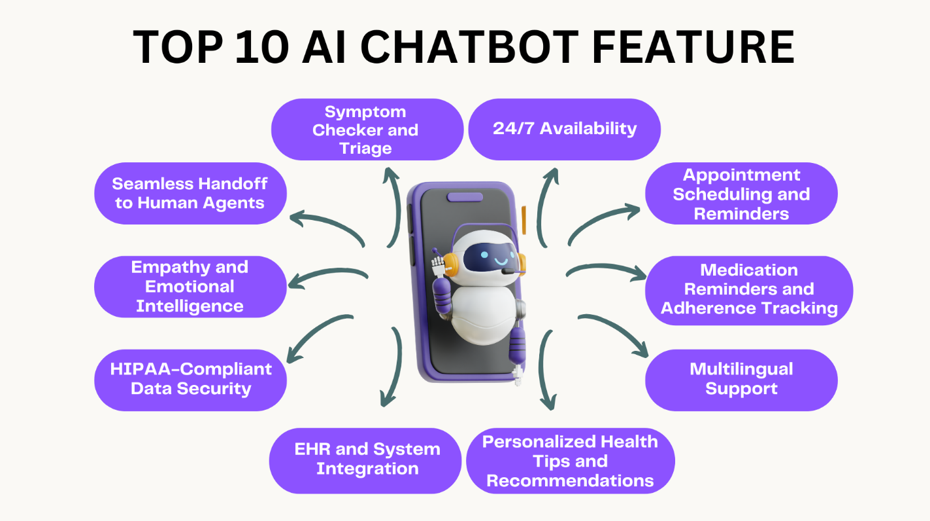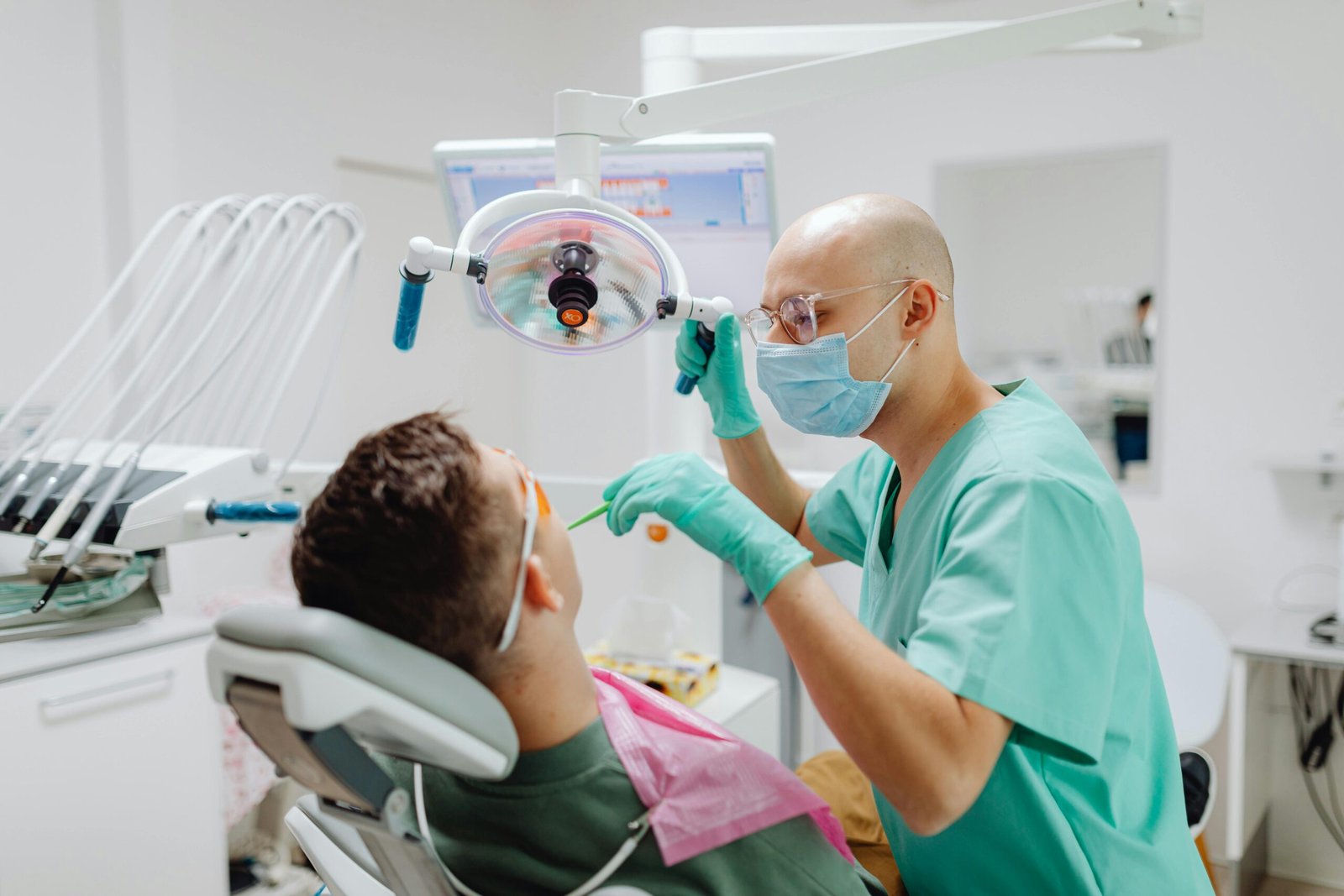Automation is transforming healthcare by streamlining administrative tasks, improving accuracy, and enhancing patient care. Through technologies like AI and robotic process automation, healthcare providers can handle scheduling, billing, data entry, and diagnostics more efficiently, freeing up time for patient interaction. Automation also supports remote monitoring, predictive analytics, and personalized medicine, making care more proactive and responsive Healthcare Automation. As healthcare faces increasing demands, automation plays a crucial role in building a more efficient, cost-effective, and patient-centered healthcare system.

Healthcare Automation
What is automation in healthcare?
Automation in healthcare refers to the use of technology to perform repetitive, time-consuming tasks within medical settings, improving efficiency, accuracy, and patient care. It involves tools like AI, robotic process automation, and data-driven systems to handle tasks such as scheduling, billing, diagnostics, and remote monitoring Healthcare Automation. By reducing manual work, automation allows healthcare providers to focus more on patient interaction and care delivery. It also enhances data accuracy, streamlines workflow, and supports personalized treatments, helping healthcare systems meet growing demands while improving quality and reducing costs.
why we use automation in healthcare?
Automation in healthcare enhances efficiency, accuracy, and patient care by streamlining administrative tasks, reducing human error, and facilitating data management. It enables quicker access to patient information, automates routine processes like appointment scheduling and billing, and supports clinical decision-making through data analysis Healthcare Automation. By freeing up healthcare professionals from repetitive tasks, automation allows them to focus more on patient interactions and delivering high-quality care.
Benefits of automation in healthcare
-
Enhanced Efficiency and Productivity
- Automating routine tasks, such as patient registration, billing, scheduling, and administrative tasks, reduces workload for staff and allows them to focus on more critical tasks.
- Tasks like data entry, appointment reminders, and prescription refills are handled faster, reducing delays and improving the patient experience Healthcare Automation.
-
Improved Patient Safety and Care Quality
- Automated systems can minimize human errors, such as those in medication administration and patient record management, which are crucial for patient safety.
- Clinical decision support systems (CDSS) can analyze patient data and recommend treatment plans, which helps healthcare providers make evidence-based decisions.
-
Better Data Management and Analytics
- Automation enables the collection and organization of massive amounts of data, making it easier to track patient progress, evaluate treatment outcomes, and analyze population health trends.
- By integrating data from various sources, automated systems can provide healthcare providers with comprehensive insights for better decision-making.
-
Streamlined Workflow and Resource Allocation
- Automated scheduling systems ensure that staff and resources are allocated efficiently, reducing patient wait times and optimizing facility usage.
- Predictive analytics help hospitals and clinics prepare for fluctuations in demand, ensuring resources are available where they’re most needed.
-
Cost Reduction
- By minimizing manual work and reducing errors, automation can lower administrative costs, save time, and increase revenue Healthcare Automation.
- Automated billing processes, for instance, ensure claims are filed accurately and promptly, reducing the likelihood of denials and financial losses.
-
Increased Access to Care
- Automation enables telemedicine platforms and patient portals, which make healthcare more accessible, especially in remote or underserved areas.
- Chatbots and virtual assistants can provide round-the-clock support, answering basic questions and triaging cases to free up healthcare professionals for more complex cases.
-
Enhanced Compliance and Security
- Automated systems can help maintain compliance with healthcare regulations, such as HIPAA, by securely managing patient records and ensuring privacy.
- Automated alerts and security protocols can protect sensitive health data from unauthorized access and cyber threats Healthcare Automation.
-
Improved Patient Engagement
- Patient engagement tools, such as appointment reminders, follow-up notifications, and health monitoring, keep patients informed and engaged in their care.
- Automation enables personalized health reminders and educational materials, fostering a proactive approach to health management AI Chatbot Development.
Uses of automation in healthcare
1.Patient Registration & Scheduling:
Online forms, self-check-in kiosks, and automated reminders streamline registration and reduce wait times.
2.Billing & Claims Processing:
Automation ensures accurate billing, faster claims processing, and reduces administrative work.
3.Electronic Health Records (EHR):
Automates data entry, updates, and retrieval, enhancing data accuracy and access for providers.
4.Medication Dispensing:
Automated systems dispense medication accurately, reducing errors and improving patient safety.
5.Remote Patient Monitoring (RPM):
Devices track vitals and alert providers to abnormalities, allowing real-time care from a distance.
6.Lab & Diagnostic Testing:
Automation in labs speeds up tests and improves accuracy, while imaging systems assist with faster diagnostics.
7.Telemedicine & Virtual Care:
Automates patient triage, appointment management, and initial assessments for accessible virtual care.
8.Surgical Assistance:
Robotic systems support precision in minimally invasive surgeries, improving outcomes.
9.Inventory Management:
Tracks and restocks supplies automatically to avoid shortages.
10.Patient Engagement:
Automated reminders and educational materials help patients stay on top of their health and follow-up care.
Challenges of automation in healthcare
1.High Implementation Costs:
Initial costs for purchasing, installing, and training on automated systems can be substantial, limiting accessibility for smaller facilities.
2.Data Privacy and Security:
Automated systems handle sensitive patient data, making them targets for cyberattacks. Maintaining data privacy and complying with regulations like HIPAA are crucial but challenging.
3.Integration with Existing Systems:
Many healthcare organizations rely on legacy systems that may not be compatible with new automation tools, leading to integration issues and workflow disruptions.
4.Dependence on Technology and Downtime:
If automated systems fail or experience downtime, critical tasks may be delayed. Maintaining backup processes and minimizing system outages are necessary for patient safety.
5.Resistance to Change:
Staff may be hesitant to adopt automation, fearing it will replace jobs or increase their workload during the transition phase.
6.Data Accuracy and Quality:
Automated systems rely on data quality; errors in data entry or incomplete records can lead to flawed outcomes or recommendations.
7.Ethical and Legal Concerns:
Automating patient interactions or clinical decisions raises ethical issues about patient-provider relationships, consent, and accountability for errors made by automated systems.
8.Lack of Standardization:
Different vendors and healthcare facilities use various automation tools, leading to inconsistency in patient care and data handling across institutions.
Future of Automation in healthcare
The future of automation in healthcare will bring more efficient, precise, and personalized care. AI-driven diagnostics, predictive analytics, and robotic-assisted surgeries are poised to enhance accuracy and patient outcomes, while remote monitoring tools and wearables will empower patients and allow real-time health management Healthcare Automation. Automation will streamline workflows, integrate data seamlessly across platforms, and support proactive care. Although challenges like privacy and costs remain, advances in secure technology are making healthcare automation more feasible. Overall, automation will enable a more accessible, patient-centered, and data-driven healthcare system.
Conclusion
automation is set to play a crucial role in shaping the future of healthcare, offering significant improvements in efficiency, accuracy, and patient engagement. As AI, robotics, and data integration continue to evolve, they promise to make healthcare more accessible, personalized, and proactive. While challenges such as cost, data security, and integration remain, ongoing advancements are steadily addressing these issues, paving the way for a more connected and efficient healthcare system. Ultimately, automation holds the potential to transform healthcare, enhancing care quality and allowing providers to focus more on what matters most—the patient Healthcare Automation.








